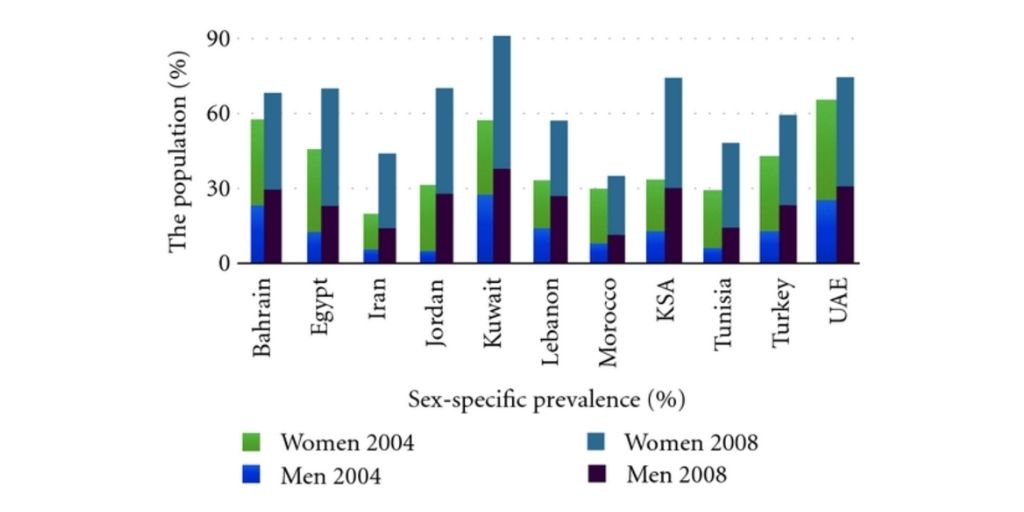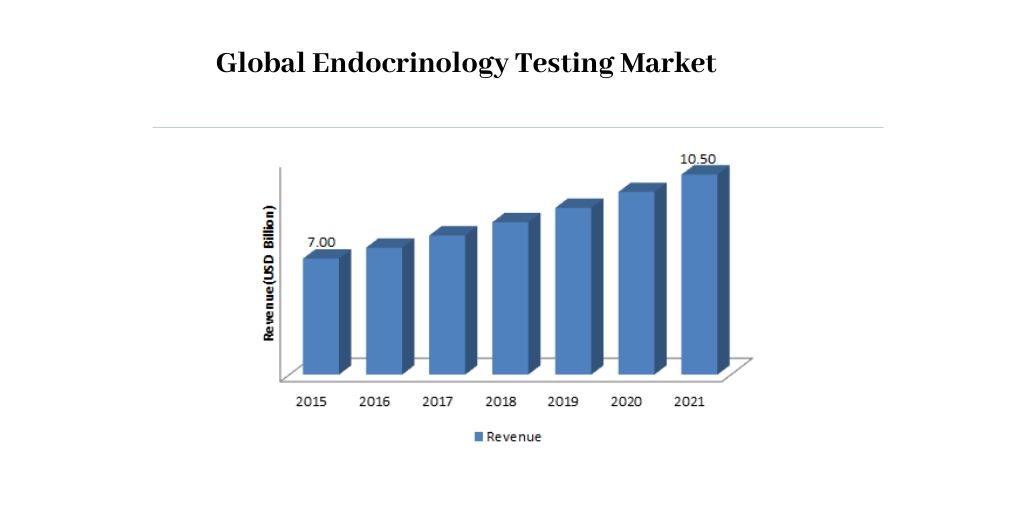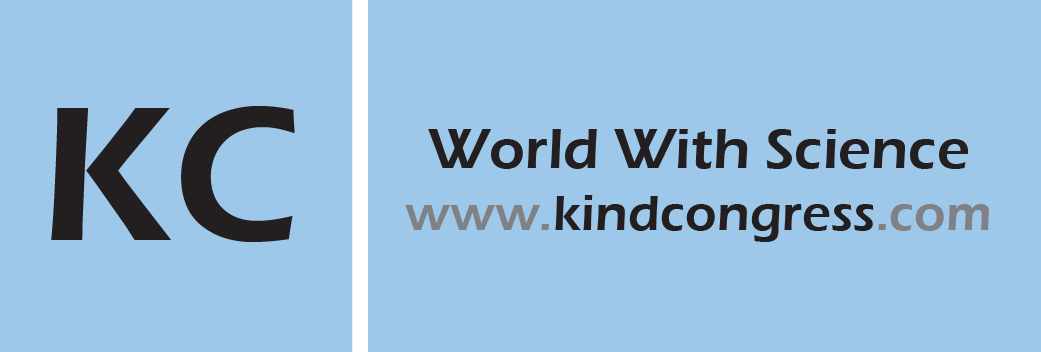Theme: Innovative Measures in Obesity and Endocrinology
Obesity Middleeast 2020
Following the success of the previous conferences, ME Conferences take a lot of privilege to invite all to with honor to the “3rd Middle East Obesity, Bariatric Surgery and Endocrinology Congress” will be held during June 22-23, 2020 in Abu-Dhabi, UAE, with a theme of “Innovative measures in Obesity and Endocrinology”.The Conference provides Obesity Symposium, Obesity Workshops, Endocrinology Workshop, Oral presentation, Exhibitions, and Poster introductions. Obesity and Endocrinology 2020 conference is a worldwide stage to discuss the current trend on Obesity and Childhood Obesity, Bariatric and Metabolic Surgery, Cardiovascular Diseases & Risk of Obesity, Obesity Medicine, Endocrine Diseases & Medicine and in the field of Obesity. The two days of Obesity conference contributes to an active discussion on recent advancement and to describe the current Prevalence in the field of Obesity, Bariatric Surgery, and Endocrinology.
Obesity is an epidemic in the UAE. The obesity level in the UAE is one of the highest in the world. It is one of the leading health concerns in the country affecting people of all ages. The obesity levels in the GCC countries including the UAE are among the highest in the world. It is reported that girls tend to be more obese than boys in the UAE. The researchers warn that the obesity level among children is alarmingly high in the country ad it is growing. The childhood obesity level in the UAE is much higher than that found in western countries
Obesity Middle East 2020 is anticipants from 40 and more Countries across the globe and the two days will provoke plenary Sessions, Keynotes speeches, Posters, and Oral Presentations.
Why to attend the conference?
- Meet your objectives from around the world addressed regarding Obesity, Bariatric Surgery, and Endocrinology apprehensions.
- This is every so often a single finest chance to accomplish the utmost significant gathering of members from the Research Institutions, Universities, Clinics, and Hospitals.
- Distribute Data and Conduct demonstrations, meet with present potential speakers, generate a splash with additional products, and receive name recognition at this 2-day event.
- World-renowned speakers, interesting techniques, latest updates in Obesity, Endocrinology and stimulating the field of genuine extent hallmarks of this conference
Who are the Audiences?
- Obesity Specialists
- Endocrinologists
- Bariatric Surgeons
- Basic Clinical Research Scientist & Students
- Yoga & Fitness Professionals
- Nutritionists
- Diabetologists
- Dieticians
- Physical Therapists
- Students
- Industry Professionals
- Medical Colleges
- Obesity & Endocrinology Associations and Societies
- Business Entrepreneurs
- Health Promoters
- Fitness Professionals
- Public Health Professionals
Track 01: Obesity and Childhood obesity
Childhood obesity is one of the most adverse therapeutic conditions that is influencing children and adolescents. Nowadays most of the children are suffering from obesity. Due to genetical reasons, many obese children become obese adults, especially if one or both parents are obese. The early physical impacts of obesity in adolescence incorporate, the greater part of the child’s organs being influenced, apnoea, hepatitis, gallstones rest issues, malignancy, and different disorders like liver diseases, hypertension, coronary illness, early and expanded intracranial pressure. Childhood obesity can also result in serious conditions including diabetes, adolescence, dietary problems, for example, bulimia and anorexia, skin contaminations, asthma and other respiratory issues. Obesity can be diminished by doing Physical action. Proposals from the experienced metabolic and Bariatric Surgeons, enrolled dieticians, advertisers helps in the decrease of youth diabetes.
- Exogenous Obesity
- Childhood Obesity Prevention
- Dietary Effects
- Body Mass Index( BMI)
- Child Nutritions
- Infant Feeding
Track 02: Epidemiology of Obesity
Obesity is a complex multifactorial disease. The worldwide prevalence of overweight and obesity has doubled since 1980 to an extent that nearly a third of the world's population is now classified as overweight or obese. Obesity rates have increased in all ages and both sexes irrespective of geographical locality, ethnicity or socioeconomic status, although the prevalence of obesity is generally greater in older persons and women. This trend was similar throughout the regions and countries, although absolute prevalence rates of overweight and obesity varied widely. For some developed countries, the prevalence rates of obesity seem to have levelled off during the past few years. Body mass index (BMI) is basically used to define overweight and obesity in epidemiological studies. However, BMI has decreased sensitivity and there is a large inter-individual variability in the per cent body fat for any given BMI value, partly attributed to age, sex, and ethnicity. For occurrence, Asians have greater per cent body fat than Caucasians for the same BMI. Greater cardio metabolic risk has also been associated with the localization of excess fat in the visceral adipose tissue and ectopic depots (such as muscle and liver), as well as in cases of increased fat to lean mass ratio. These data suggest that obesity may be far more common and requires more urgent attention than what large epidemiological studies suggest. Simply relying on BMI to assess its prevalence could hinder future interventions aimed at obesity prevention and control.
- Weight impact in obesity
- Obesity throughout the world
- Centres of Diseases Control and Prevention
Track 03: Bariatric and Metabolic Surgery
- Weight loss Surgery
- Intragastric Balloon
- Stomach folding
- Sleeve gastrostomy
Track 04: Bariatric Surgery and Type 2 Diabetes
It has been many years since the resolution of type 2 diabetes was observed as an additional outcome of surgical treatment of morbid obesity. Moreover, it has been shown unequivocally that diabetes-related morbidity and mortality have declined significantly postoperatively, and this improvement in diabetes control is long lasting. Bypass procedures, the Roux-en-Y gastric bypass (RYGBP) and the biliopancreatic diversion (BPD), are more effective treatments for diabetes than other procedures and are followed by normalization of concentrations of plasma glucose, insulin, and HbA1c in 85–100% of morbidly obese patients. Studies has been seen that return to euglycemia and normal insulin levels occurs within days after surgery, long before any significant weight loss takes place. This fact suggests that weight loss alone is not a sufficient explanation for this improvement. Other possible mechanisms effective in this phenomenon are decreased food intake, partial malabsorption of nutrients, and anatomical alteration of the gastrointestinal (GI) tract, which incites changes in the incretin system, affecting, in turn, glucose balance. Better understanding of those mechanisms may bring about a discovery of new treatment modalities for diabetes and obesity.
- Adult onset Diabetes
- Gestational Diabetes
- Dietary changes
- Insulin Resistance
- Diet and Obesity
Track 05: Obesity Surgery and Treatment
A bariatric surgical procedure leads to weight loss by controlled the amount of food the stomach can hold, causing malabsorption of nutrients, or by a combination of both gastric restriction and malabsorption. Bariatric procedures also often cause hormonal changes. Today’s most weight loss surgeries are performed using minimally encroaching techniques (laparoscopic surgery). The most commonly used bariatric surgery procedures are gastric bypass, sleeve gastrostomy, adjustable gastric band, and biliopancreatic diversion with duodenal switch. Each surgery has its own advantages and disadvantages.
The aim of obesity treatment for obese patients is to reach and stay at a healthy weight. This improves your overall health and lowers your risk of developing complications related to obesity. You may need to work with a team of health professionals — including a dietician, behavioral counsellor or an obesity specialist — to help you understand and make changes in your eating and activity habits.
- Low fat Carbohydrates
- Weight loss programs
- Endo duodenal-jejunal bypass Surgery
- Non-alcoholic fatty liver Diseases
Track 06: Obesity and Nutrition
Eating excessive fat-containing foods and lack of nutritional intake are the most common causes of obesity and overweight. Good nutrition, physical activity, and healthy body weight are important parts of a person’s overall health and well-being. Together, these can help decrease a person’s risk of developing serious health conditions, such as high blood pressure, high cholesterol, diabetes, stroke, heart disease and cancer. A controlled diet, dietary food, regular physical activity, and achieving and maintaining a healthy weight also are paramount to managing health conditions so they do not worsen over time. Nutritional Conferences interprets the interaction of nutrients and other substances in food in relation to maintenance, health, and disease condition of an organism.
- Macronutrients
- Intestinal Bacterial Flora
- Malnutrition
- Saturated Fats
Track 07: Bariatric Surgery in Pregnancy
An obese woman is about thrice as liable to be infertile as a normal woman. The obese woman has a lower possibility of pregnancy as well as has brought down the shot following in vitro treatment. They require higher amounts of gonadotropins and have an expanded unsuccessful labor rate. Whenever feasible, pregnancy should be delayed till weight loss stabilizes for 12 – 24 months after surgery. Weight loss is one of the cornerstones to achieve a healthy pregnancy and childbirth. Obesity Conferences aimed on policy and environmental strategies to make healthy eating and active living accessible and affordable for everyone.
- Premature Birth
- Gestational Diabetes
- Loss of Pregnancy
Track 08: Gastric Bypass Surgery
“Gastric bypass”, is one of the most commonly carry out bariatric procedures worldwide and has long been considered the “gold standard” of bariatric surgery. The gastric bypass was first innovated in 1967 and was performed as open surgery for several decades. However, today, it is almost entirely performed by the laparoscopic (keyhole) approach. This gastric bypass is helps obese people lose weight in several different ways. The small pouch restricts the amount of food that can be eaten. The connection between the small bowel and the gastric pouch re-routes the transit of food directly in to the small bowel. Since the food does not go through the bypassed part of the stomach and duodenum there are metabolic and hormonal changes that lead to reduced appetite and an increased feeling of fullness.
- Flexible Gastric Banding
- gastric Bypass forum
- Lap band forum
Track 09: Hyperparathyroidism in Paediatric Obesity
Obesity is one of the health problems in the developing and developed countries. Obesity subjects the individuals with metabolic and endocrine disorders. It is clear that vitamin D deficiency or insufficiency may lead to secondary hyperparathyroidism. Thus, obesity increases the possibility of vitamin D deficiency. Considering the high commonness of vitamin D deficiency in children and adolescents with overweight or obesity, it seems logical to have treatment and prevention from vitamin D deficiency. This is similar to a study in adult vitamin D deficiency related with adiposity which also demonstrates the importance of vitamin D deficiency screening in children and adolescent obesity. Vitamin D replacement can decreases many complications in childhood (skeletal disorder, secondary hyperparathyroidism) and decreases metabolic disorder and cardiovascular disease incidence in later childhood. On the other hand, calcium has a key role in weight regulation, useful in replacement therapy, but there is a need for a further study to reveal exactly the effects in Pediatric obesity or overweight.
- Radiation Therapy
- Parathyroid Adenoma
- Paediatric Nutrition
Track 10: Cardiovascular Diseases & Risk of Obesity
Obesity and overweight are related to several factors that increase ones risk for cardiovascular disease (coronary artery disease and stroke).
Obesity and overweight are also related to hypertension and an enlarged left ventricle (left ventricular hypertrophy), increasing risk for heart failure.
In additionally, overweight and obesity can be related to some cancers, gallbladder disease and osteoarthritis.
- Hypertension
- Endothelial dysfunction
- Left Ventricular Hypertrophy
- Diabetes
- Congestive Heart Failure
- High blood lipids, especially high triglycerides, LDL cholesterol, and total cholesterol and low HDL cholesterol
- High blood pressure
- Impaired glucose tolerance or type-2 diabetes
- Metabolic syndrome
Track 11: Effects of Obesity
The increase in obesity worldwide will have an important impact on the global incidence of cardiovascular disease, type 2 diabetes mellitus, cancer, osteoarthritis, work disability, andsleepapnea. Obesity has a more pronounced impact on morbidity than on mortality. Disorder due to obesity related cardiovascular diseases will increase particularly in industrialized countries, as patients survive cardiovascular diseases in these countries more often than in non-industrialized countries. Dysfunction due to obesity related type 2 diabetes will increase particularly in industrializing countries, as insulin supply is usually insufï¬cient in these countries. As a result, in these countries, an lead in disabling nephropathy, arteriosclerosis, neuropathy, and retinopathy is expected. Increases in the worldwide range of obesity will potentially lead to an increase in the number of years that subjects suffer from obesity-related morbidity and disability.
- Cancer
- Heart Diseases
- Cognitive Impairment
- Oxidative Stress
- Dementia
- CNS Dysfunction
- Cerebrovascular disease
Track 12: Genetic Obesity
Obesity is very heritable. Obesity can be a complicating disorder which results from the interactions of a wide variety of hereditary and environmental factors. Polymorphisms in various genes controlling appetite and metabolism make susceptible to obesity under certain dietary conditions. The melanocortin 4 receptor gene mutation may be responsible for tens of thousands of cases of obesity. Monogenic type of genetic mutation is mainly responsible for severe forms of obesity that run in families. Occurrences of monogenic kinds of overweight are evidence that obesity may be caused by genetic mutations are mainly responsible for the occurrence of monogenic kinds of overweight. The most common forms of obesity are probably the result of variations in a large number of genes. The Obesity Meeting 2019 highlights the evolving strategies for obesity, weight loss-management, childhood obesity, exercise, physical therapy, bariatric surgery and upcoming challenges in the field of medicine & healthcare.
- Genetic Syndromes
- Gene Mutation
- Hereditary
- Prader-Willi syndrome
Track 13: Obesity Medicine
Obesity medicine is a field which dedicated to the comprehensive treatment of patients with obesity. Obesity medicine takes into account the multi-factorial etiology of obesity in which behaviour development, environment, epigenetic, genetic, nutrition, physiology, and psychosocial contributors all play a role. As time passes, we become more knowledgeable about the complexity of obesity, and we have ascertained that there is a certain skill set and knowledge base that is required to treat this patient population. Clinicians in the field should understand how a myriad of factors contribute to obesity including: regulation of food intake and energy balance through enteroendocrine and neuroregulation, and adipokine physiology. Obesity medicine physicians should be skilled in identifying factors which have contributed to obesity and know how to employ methods (behavior modification, pharmacotherapy, and surgery) to treat obesity. No two people with obesity are similar, and it is important to approach each patient as an individual to determine which factors contributed to their obesity in order to effectively treat each patient.
- Food Supplements
- Diet
- Food Nutrition
Track 14: Dietary Food and yoga
Yoga means fusion between the mind, body and spirit. It involves the practice of physical postures and poses, As the name recommended, the ultimate aim of practicing Yoga is to create a balance between the body and the mind and to attain self-enlightenment. Yoga is related with a healthy and lively lifestyle with a balanced approach to life.
Low-fat diets have long been known as the key to a healthy weight and to good health. But the evidence just isn’t there: Over the past 30 years in the U.S., the percentage of calories from fat in people’s diets has gone down, but obesity rates have skyrocketed. Clinical trials have found that following a low-fat diet does not make it any easier to lose weight than following a moderate- or high-fat diet. Study volunteers who follow moderate- or high-fat diets lose just as much weight, and in some studies a bit more, as those who follow low-fat diets.
- Balanced Physical Therapy
- Halasana Yoga
- Burns waist fat
- Fat Burning Foods
Track 15: Weight Management
The optimal diet for prevention of weight gain, metabolic syndrome, obesity and type 2 diabetes is fiber-rich, fat-reduced, high in low-energy density carbohydrates (fruit, vegetables, and whole grain products), and intake of energy-containing drinks is restricted. Weight management emphasizes the importance of healthy eating patterns that include a variety of nutrient-dense foods, limit portions of energy-dense foods, and reduce overall energy density. Weight loss is achieved by a negative energy balance. This, in turn, is attained in most by the reduction in calorie intake rather than an increase in physical activity. Nutritional Conferences interprets the interaction of nutrients and other substances in food in relation to maintenance, health, and disease of an organism.
- Nutritional Interventions
- Metabolic Outcomes
- Nutrition
- Dietary supplements
Track 16: Endocrinology
Endocrinology is the branch of medicine that deals with the study of hormones. Hormones are essential for our every-day survival. Hormones control our temperature, stress, sleep, mood, growth and more. The endocrine system is assessed primarily by measuring hormone concentrations. It is also concerned with the integration of developmental events proliferation, growth, and differentiation, and the physiological or behavioral activities of metabolism, growth, and development, tissue function, sleep, digestion, respiration, stress, lactation, excretion, mood, movement, reproduction, and sensory perception caused by hormones. The endocrine system comprises of several glands in all parts of the body those secretes hormones. Hormones which were secreted from the glands are responsible for performing several important functions in our body. if the behavior of hormones is not correct, then it leads to cause hormonal imbalance, due to hormonal imbalance the endocrine glands can lead to cause several diseases like Diabetes, thyroid, …etc. The Obesity Meeting 2020 highlights the evolving strategies for Obesity, Weight loss-management, childhood obesity, physical therapy, exercise, bariatric surgery and upcoming challenges in the field of Medicine & Healthcare
- Obesity on Leptin
- Obesity on Growth Hormones
- Hormones
- Endocrine Regulation
- Growth and Development
Track 17: Comparative Endocrinology
Comparative endocrinology encompasses research on the roles of hormones in regulating biological functions in a wide range of diverse vertebrate and invertebrate species. Thus, it becomes an unattainability to adequately describe and discuss within the confines of a single chapter the many endocrine control systems that exist in the animal kingdom. Consequently, an effort is made in this chapter to present some unique and novel aspects of endocrine function that contribute to behaviour, growth and reproduction in a few select species. Although much resemblances in endocrine organization and function exists among species, there are differences,
- Hormonal Imbalance
- Control of hormone secretion
- Osteoporosis
- Thyroid Disorders
Track 18: Endocrine Diseases & Medicine
The endocrine system is a network of glands that produce and release hormones that help control many important body functions, including the body's ability to change calories into energy that powers cells and organs. The endocrine system influences how your heart beats, how your bones and tissues grow, even your ability to make a baby. It plays a vital role in whether or not you develop diabetes, thyroid and parathyroid disease, growth disorders, sexual dysfunction, and a host of other hormone-related disorders.
- Adrenal and Pituitary Tumors
- Diabetic
- Hyperthyrodium
- Addison's Diseases
- Cushing's Syndrome
Track 19: Paediatric Endocrinology
Paediatric endocrinology is a branch of medical sciences that deals with endocrine-related conditions in children which also includes type 1 and type 2 diabetes, obesity, growth disorders, thyroid and adrenal problems, problems of puberty and many more. Children are having different psychological needs from those of adults. Paediatric endocrinologists have pervasive training and proficiency in dealing with children and in treating children with endocrine disorders and hormonal problems. Nutritional and dietary Conferences interprets the interaction of nutrients and other substances in food in relation to maintenance, health and disease of an organism.
- Underactive or overactive thyroid gland
- Adrenal gland hypo/hyper function
- Pituitary gland hypo/hyper function
- Ovarian and testicular dysfunction
Track 20: Neuroendocrinology
Neuroendocrinology is the branch of medicine concerned with the interactions between the nervous system and the endocrinology system. In a human body, nervous and endocrine systems often act together to regulate the physiologic processes. Human endocrine working has a strong foundation in the CNS, under the direction of the hypothalamus, which has coordinate control over the pituitary organ. The pituitary gland has two major lobes the anterior lobes (adenohypophysis) and posterior lobe called neurohypophysis. The pituitary gland sometimes called master gland.
Circadian rhythms in human follow a near 24hrs cycle and may influence a variety of regulatory function, including the sleep-wake cycle, body temperature direction example of action, for example, eating and drinking, hormone discharge. This is because of the pacemaker in the cerebrum which gets projections of light through the retina and invigorates electrical impulses to neurotransmitters for various functions.
- Vasopressin
- Oxytocin
- Growth Hormone
- Thyroid Stimulation Hormone
- ACTH (Adrenocorticotrophic Hormone)
- Prolactin
- Gonadotropin-stimulation Hormone
- Melanocyte- stimulation Hormone
Scope & Importance of Obesity Middleeast 2020:
Obesity Middleeast 2020 is a unique forum to share and gain knowledge in the field of Obesity, Bariatric Surgery and Endocrinology. The main aim of this conference is to understand, empathize and take prompt actions for better care and healthy living.
This conference mainly aims to bring Global-renowned speakers, Obesity Specialists, Endocrinologist, Bariatric Surgeons, Nutritionists, Dieticians, Physical Therapists, Basic Clinical Research Scientist & Students from different geographic regions can share their valuable insights on the advancements in the field of Obesity, Bariatric Surgery and Endocrinology.
Obesity Global Market Analysis:
Obesity is now well recognized as a disease in its own right, one that is largely preventable through changes in lifestyle, especially diet. Obesity is also a major risk factor associated with increased morbidity and mortality from many non-communicable diseases (NCDs)
The prevalence of obesity is increasing worldwide, including in some developing countries with previously very low prevalence. The result of chronic positive energy balance, obesity is associated with many chronic diseases, such as diabetes, heart disease, hypertension and some forms of cancer. It is especially important to determine those factors that influence the prevalence of obesity in developing countries since these countries generally lack the infrastructure to treat the chronic diseases associated with obesity adequately. In this article, the aetiology of obesity in developing countries is described and the policy and economic implications of the increasing prevalence of obesity in transitional countries are discussed.
Prevalence of Endocrinology:
Endocrine and metabolic diseases are one of the most usual contemporary human afflictions, particularly in the United States and other countries with generous nutrition and screening programs for high-risk individuals. The prevalence and incidence of certain disorders, such as diabetes and obesity, have been well defined in large population-based studies. There has, however, been no comprehensive survey and compilation of data regarding the epidemiology of endocrine and metabolic disorders to serve as a unified source of information about these conditions. The same is true of most other subspecialties of medicine, with the exception of oncological diseases.
Why in Abu-Dhabi, UAE?
According to World Health Organisation (WHO) report in the global news, the UAE was classified as the second highest for obesity rates in the world. As a outcome of these obesity statistics among the youths, there are associated diseases, which tend to plague the UAE adults later, such cardiovascular diseases, diabetes, hypertension and others. The prevalence of obesity amongst children indicator measures the proportion of children between the age of 5 and 17 who are considered obese out of the total children of the same age group.
Dubai: The findings of one of the largest population studies conducted recently on 33,000 Emirati men between the age of 18 and 20 in the UAE has thrown up some startling statistics, with the majority of Emirati men under 30 suffering from obesity, diabetes and other lifestyle conditions.
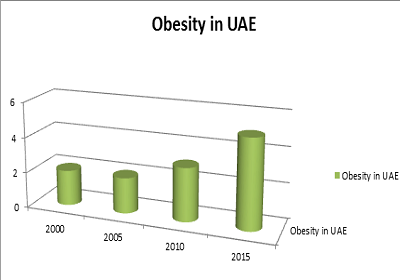
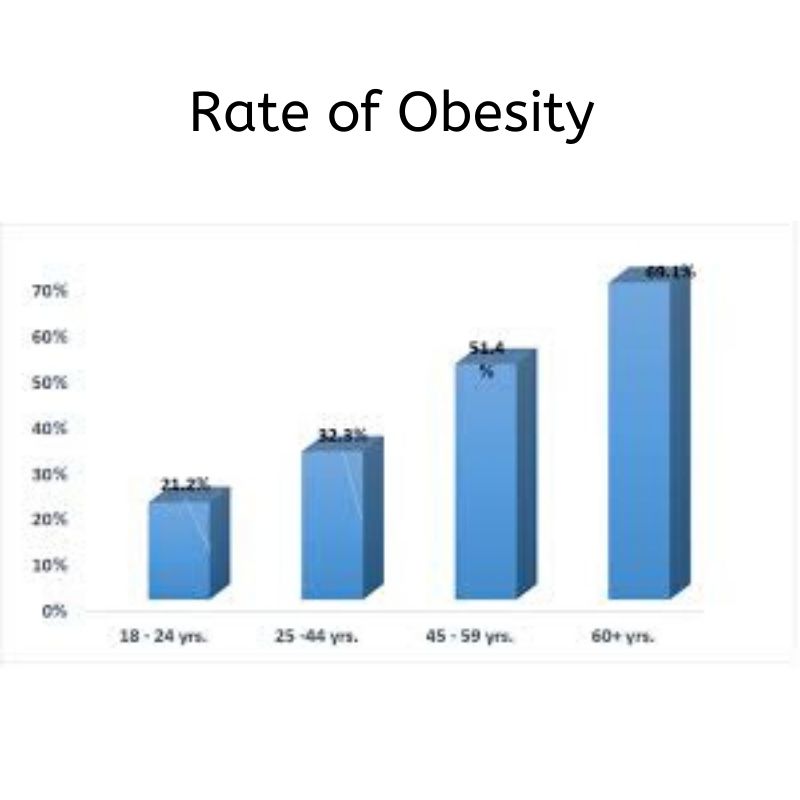
Major Associations in the World:
- All India Association for Advancing Research in Obesity
- The Philippine Association for the Study of Overweight and Obesity
- The Egyptian Medical Association for the Study of Obesity (EMASO)
- Hong Kong Association of Study of Obesity (HKASO)
- Diabetic Association of India
- All India Association for Advancing Research in Obesity (AIAARO)
- American Public Health Association
- National Lipid Association
- Malaysian Association for the Study of Obesity (MASO)
- California Medical Association Foundation
- This Stigma of Obesity - Association for Psychological Science
- Association for Physical Activity, Diet, and Obesity Measures
- Obesity - American Beverage Association
- Obesity Management Association (OMA)
- WHO | Obesity
- Associations of Physical Activity, Obesity, and Serum Lipids
- Associations of Obesity, Alcohol abuse and Smoking
- Associations between Short Sleep Duration and Central Obesity
- Dieticians Association of Australia
- Associations between Short Sleep Duration and Central Obesity
- Dieticians Association of Australia
- Association of Parental and Child Overweight and Obesity
- Association of Chronic pain and Obesity
- North American Association for the Study of Obesity Association for Nutrition
- Association of Obesity, Physical Activity and Cancer
- Associations of Urban Environment and Obesity
- Association of Perinatal Endocrinology and Metabolism (PEM)
- ICCA Association of Database Endocrinology
- Endocrinology Association of Naturopathic Physicians
- Public Health Association of Australia
- European Neuroendocrine Association
- American Association of Clinical Endocrinologists
- American Obesity Treatment Association
- Obesity Medicine Association
- World Obesity Federation
- American Obesity Association (AOA)
- Association for the Study of Obesity
- Childhood Obesity - American Heart Association
- All India Association for Advancing Research in Obesity
- American Medical Association
- American Obesity Treatment Association
- Associations of Television Content Type and Obesity in Children
- Social Science of Obesity
- European Association for the Study of Obesity: EASO
- American Obesity Association (AOA) – Obesity
- American Heart Association
- IFSO | Obesity & Bariatric Surgery
- Physical Activity and Obesity Association
- Association for Helicobacter Pylori and Obesity
- Association for Family Income and Children's Physical Fitness
- Obesity Research | Canadian Diabetes Association
- Indian Association of Endocrine Surgeons (IAES)
- European Association for the Study of Obesity (EASO)
- International Association for the Study of Obesity (IASO)
Major Hospitals around the worldwide associated with Obesity.
- UR High Land Medicine Hospital
- Stanford Health Care
- H&HN Hospitals & Health Networks
- NH Narayana Health
- Texas Heart Institute
- University of Rochester Medical Centre
- OWH Office on Women’s Health
- Central Intelligence Agency
- Encyclopedia.com
- Massachusetts General Hospital
- Cleveland Clinic
- UCSF Medical Centre
- Johns Hopkins Hospital
- North-western Memorial Hospital
- Brigham and Women’s Hospital
- Better Health
- Chestnut Hill Hospital
- Laney Hospital & Medical Centre
- University of Maryland Medical Centre
- BAPEN Advancing Clinical Nutrition
- SHARP Health Plan
- American Diabetes Association
- Heath & Social Care Information Centre
- MAYO Clinic
- Boston Children’s Hospital
- Cleveland Clinic
- Holy Cross Hospital
- Henry Ford Macomb Hospitals
- Mississippi State Department of Health
- Johnson Country Hospital
- University of Miami Hospital
- Stanford Health Care
- H&HN Hospitals & Health Networks
Related Conferences: Obesity Conference | Endocrinology Conference | Childhood Obesity | Obesity Congress | Bariatric Therapy | Genetics of obesity | Obesity Conference Events | 2020
Related Conferences:
- 2nd International Conference on Obesity and Diet Imbalance November 25-26, 2019 Dubai, UAE
- International Conference on Diabetes and Cholesterol Metabolism November 25-26, 2019 Dubai, UAE
- Annual Congress on Diabetes and Endocrinology December 12-13, 2019 Dubai, UAE
- 3rd World Congress on Nutrition and Obesity Prevention March 26-27, 2020 Abu Dhabi, UAE
- 26th International Conference on Human Metabolic Health- Diabetes, Obesity & Endocrinology June 22-23, 2020 Abu Dhabi, UAE
- 27th International Conference on Human Metabolic Health- Diabetes, Obesity & Metabolism April 19-20, 2021 Dubai, UAE
- 4th Global Meeting on Diabetes and Endocrinology May 24-25, 2021 New Orleans, US
- Diabetic 2021 June 14-15, 2021 Abu Dhabi, UAE
- 3rd Global Meeting on Diabetes and Endocrinology April 17-18, 2020 Kualalumpur, Malaysia
- 28th International Diabetes and Healthcare Conference July 15-16, 2020 Helsinki, Finland
- 3rd International Conference on Obesity and Chronic Diseases July 15-16, 2020 Helsinki, Finland
- Diabetic health 2022 Atlanta, US
USA
British Obesity Society, British Obesity & Metabolic Surgery Society, The Society for Obesity and Bariatric Anaesthesia, International Society for the Perioperative Care of Obese Patients, Society for Endocrinology, The Royal Society of Edinburgh, European Society of Endocrinology, International Society of Endocrinology Belgian Nutrition Society, Belgium International Confederation of Dietetic Association’s France, FAND Italian Association of Diabetics Central European Diabetes Association, International Diabetes Federation Italy, European Society of Cardiology, Cardiology Society of Serbia, Spanish Society of Cardiology, Italian Association for the Defense of the Interests of Diabetics, European Association for the Study of Obesity Nutrition & Metabolic Diseases, Romania European Society for Pediatric Research (ESPR)
EUROPE
British Obesity Society, British Obesity & Metabolic Surgery Society, The Society for Obesity and Bariatric Anaesthesia, International Society for the Perioperative Care of Obese Patients, Society for Endocrinology, The Royal Society of Edinburgh, European Society of Endocrinology, International Society of Endocrinology Belgian Nutrition Society, Belgium International Confederation of Dietetic Association’s France, FAND Italian Association of Diabetics Central European Diabetes Association, International Diabetes Federation Italy, European Society of Cardiology, Cardiology Society of Serbia, Spanish Society of Cardiology, Italian Association for the Defense of the Interests of Diabetics, European Association for the Study of Obesity Nutrition & Metabolic Diseases, Romania European Society for Pediatric Research (ESPR)
ASIA
The Asian Association for the Study of Diabetes Malaysia, The Nutrition Society of India, Australian Society for Parenteral & Enteral Nutrition Australia, Philippine Society of Endocrinology and Metabolism Philippines, Society of Diabetes Asian Society for Neuro-Oncology Japan, British Obesity Society, Obesity Management Association (OMA), The Nutritionist-Dietitians Association of the Philippines, All India Association for Advancing Research in Obesity, India, Obesity & Metabolic Surgery Society of Singapore (OMSSS) Singapore, The International Federation for the Surgery of Obesity and Metabolic Disorders (IFSO), The Philippine Association for the Study of Overweight and Obesity, Canadian Obesity Network, Australian Psychological Society, Asian Association for the Study of Diabetes, Diabetes Association of the Republic of China, The Korean Nutrition Society
Middle East:
Obesity and Metabolic Surgery Society of India, Middle East Annual Gulf Obesity Surgery Society, The Nutrition Society Pediatric Endocrine Society Saudi Arabia, Society of Metabolic and Bariatric Medicine, The Egyptian Medical Association for the Study of Obesity (EMASO), Emirates Diabetes Society, Turkey Society of Endocrinology and Metabolism, Saudi Diabetes and Endocrine Association (Saudi Arabia), The Nutrition Society, Middle East Dieticians Association Saudi Arabia, Academy for Eating Disorders
Obesity Middle East 2019
We would like to thank all of our wonderful keynotes, speakers, conference attendees, students, associations, media partners, and guests for making Obesity Middle East 2019 a successful event.
With the overwhelming success of the previous conferences, Conference series hosted the “Middle East Obesity, Bariatric Surgery and Endocrinology Congress” during May 30-31, 2019 at Renaissance Polat Istanbul Hotel, Istanbul, Turkey with the theme “Making Healthy Choice: Fighting Obesity Perplexing Problem” was a great success, where eminent keynote speakers from various reputed institutions and organizations with their resplendent presence addressed the gathering.
Benevolent response and active participation was received from the renowned experts and Editorial Board Members of Conference series Journals as well as from the Dieticians, Nutritionists, researchers, students and leaders in Obesity, who made this event successful.
The Conference was carried out through various informative and cutting edge sessions, in which the discussions were held on the following thought provoking and cerebrating scientific tracks:
- Obesity and Its Causes
- Childhood Obesity and Effects
- Obesity during Pregnancy
- Obesity and Cognitive Function
- Gentics of Obesity
- Obesity and Cardiovascular Disease
- Obesity and Nutrition
- Obesity and Diabetes
- Weight Management
- Health, Behaviour & Environment
- Yoga and Neuropathy
- Advanced Treatment for Obesity
- Gastroesophageal Reflux Disease
- Bariatric Therapy
- Bariatric Surgery in Infertility
- Endocrinology
- Neuroendocrinology
- Endocrine regulation
- Paediatric Endocrinology
- Clinical Endocrinology & specialized topics in Clinical Endocrinology
The conference was moderated by Vahid Eidkhani from Shahid Beheshti University of Medical Sciences and Health, Iran and Priya Menon from Hendrick Regional Health, USA.
The conference was embarked with an opening ceremony followed by lectures delivered by members of the Keynote forum. The adepts who promulgated the theme with their exquisite talk were:
- Alessandro Ferrario, from Gruppo Ospedaliero San Donato, Italy
- Anshoo Agarwal, from RAK Medical and Health Sciences University, UAE
- Fahri Yetisir, from Ankara Ozel Medisis Hastanesi, Turkey
- Erawan Wiradisuria from RS. Premier Bintaro, Indonesia
- Prakash Kondekar from Purohit Hospital, India
All the above mentioned Keynote speakers gave their energetic and fruitful contributions and special thanks to our Honourable Moderators Vahid Eidkhani from Shahid Beheshti University of Medical Sciences and Health, Iran and Priya Menon from Hendrick Regional Health, USA. for their remarkable contribution towards smooth functioning at Obesity Middle East 2019
Conference Sessions Chairs:
- Anshoo Agarwal, RAK Medical and Health Sciences University, UAE
ME Conferences offers its heartfelt appreciation to Societies and Organizations and is also obliged to the Organizing Committee Members, adepts of field, various outside experts, company representatives and other eminent personalities who interlaced with Conference series in supporting and making the conference never before one.
Your rejoinder is our inspiration; keeping this motto in mind and being witnessed the triumph of Obesity Middle East 2019, ME Conferences is delighted to announce the next event. Mark your calendars for the upcoming extravaganza,”3rd Middle East Obesity, Bariatric Surgery and Endocrinology Congress “to be held during Junr 22-23, 2020, at Abu-Dhabi, UAE
For details Visit: https://obesity-middleeast.conferenceseries.com/
Conference Highlights
- Obesity and Childhood obesity
- Epidemiology of Obesity
- Bariatric and Metabolic Surgery
- Bariatric Surgery and Type 2 Diabetes
- Obesity Surgery and Treatment
- Obesity and Nutrition
- Bariatric Surgery in Pregnancy
- Gastric Bypass Surgery
- Hyperparathyroidism in Pediatric Obesity
- Cardiovascular Diseases & Risk of Obesity
- Effects of Obesity
- Genetic Obesity
- Obesity Medicine
- Dietary Food and yoga
- Weight Management
- Endocrinology
- Comparative Endocrinology
- Endocrine Diseases & Medicine
- Pediatric Endocrinology
- Neuroendocrinology
To share your views and research, please click here to register for the Conference.
To Collaborate Scientific Professionals around the World
| Conference Date | June 22-23, 2020 | ||
| Sponsors & Exhibitors |
|
||
| Speaker Opportunity Closed | |||
| Poster Opportunity Closed | Click Here to View | ||
Useful Links
Special Issues
All accepted abstracts will be published in respective Our International Journals.
Abstracts will be provided with Digital Object Identifier by













